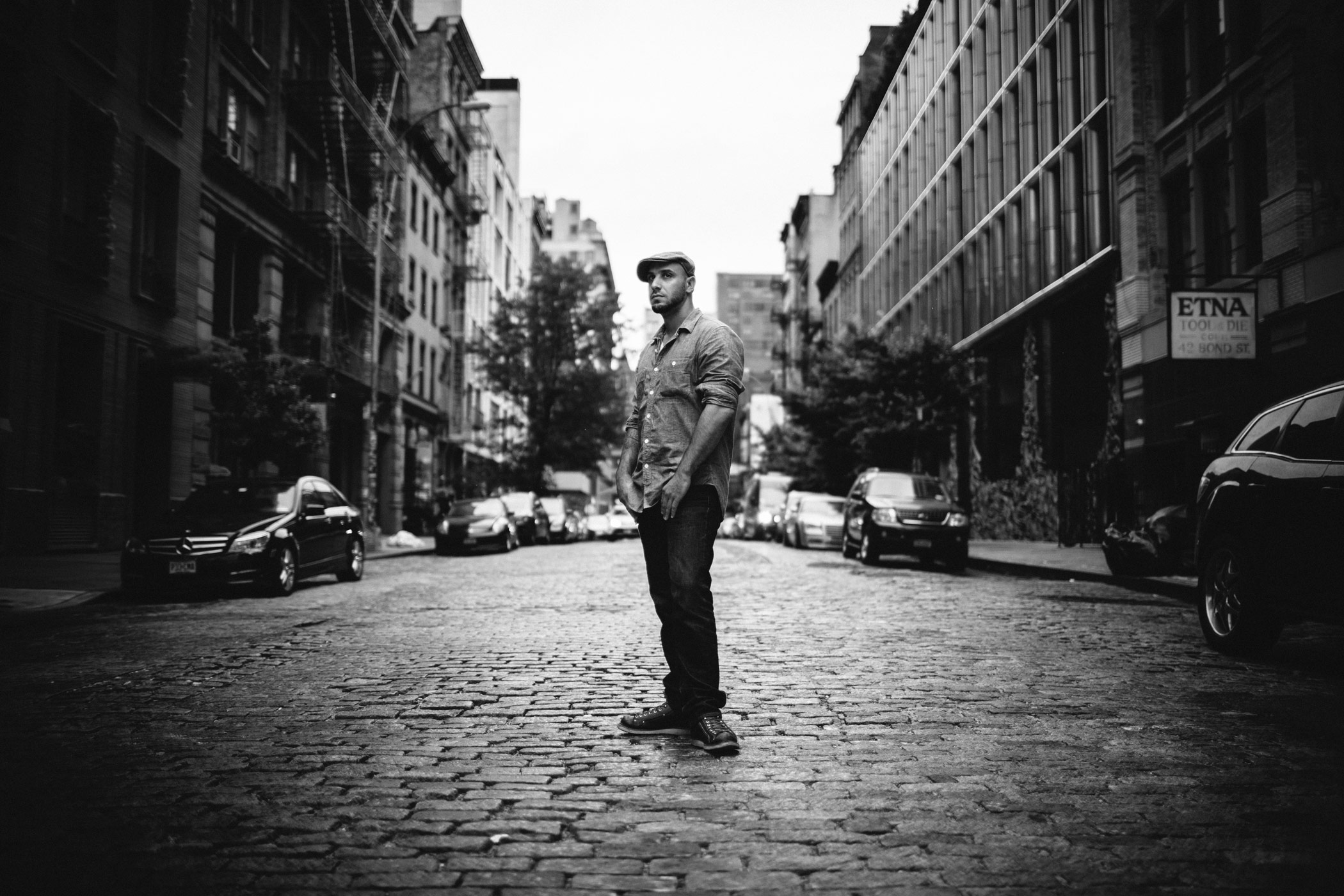
- Interview by Ryan & Tina Essmaker June 18, 2013
- Photo by Ryan Essmaker
Keith Ehrlich
- director
- filmmaker
Keith “keef” Ehrlich is the Creator and Director of Made by Hand, a short film series that focuses on great design, craftsmanship, and the maker spirit. The series was featured in the 2013 SXSW film festival. He is also the founder of Bureau of Common Goods, a Brooklyn-based film and digital content studio. He lives in Brooklyn with his wife, Mandy Brown.
Interview
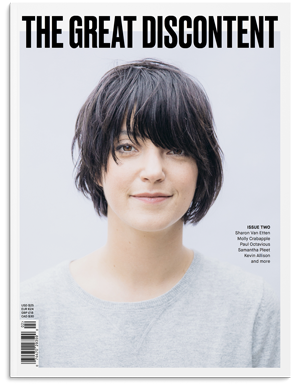 Editor’s note: An updated version of this interview, including new images and work, is featured in print in The Great Discontent, Issue Two, available in our online shop.
Editor’s note: An updated version of this interview, including new images and work, is featured in print in The Great Discontent, Issue Two, available in our online shop.
Describe your path to becoming a filmmaker.
I started making Super 8 films while attending a program for high school students at the School of Visual Arts (SVA). Film was something I was becoming serious about in high school, but I didn’t go to a school that had anything in the way of a video program. I thought I should see what filmmaking was all about and, if my memory serves me right, I was reading a book about Keith Haring, who went to SVA; that was my point of reference. I lived in the burbs of Philadelphia at the time, but my mother happened to live in NYC, near SVA, so I stayed with her to attend an SVA film program the summer before my senior year of high school.
That was an eye-opening experience. Everything was analog. We learned to cut film and it was a very tactile, exciting process. As soon as the program started, that was it. I knew this was what I wanted to do. After high school, I went to SVA for a 4-year film program and I was likely the last generation that got to do things in an entirely analog way. I learned to edit on a Moviola and a Steenbeck flatbed editing table. I was a very intense student and realized I would be paying for school for a long time and that I should take it seriously.
I also figured out right away that going to school was only part of my education. I needed to get involved in filmmaking in a practical way. I started working as a production assistant on independent features and from that, I learned what I didn’t want to do. I was turned off by some things in production, in particular the attitudes that I saw on so many crews. I recently read an interview with Jim Jarmusch where he talks about production being there to serve the film and not the other way around. That really resonates with me. At that time, my crew experiences often felt the other way around. I was also bothered by the fact that women were often marginalized. After a year, I took a step back from doing crew work. I decided to do some documentary work and got an internship with an Academy Award-nominated doc director.
I had several work experiences in addition to school, but the last was the one that put me on my path. I wanted to get into music video work, but didn’t know how. There was a bulletin board at school that I checked again and again, looking for interesting work—this was before online job boards. One day, there it was: a posting for an assistant at a company called Black Dog. Being young and stupid, I thought it was Chris Cunningham’s company, but it wasn’t; he was only a director on their roster. Black Dog is actually owned by Jake Scott, Ridley Scott’s son, and is part of Ridley Scott & Associates. I applied for the job, went to the interview, and the person interviewing me turned out to be a friend of a friend that I had coincidentally met the week before. I got the gig at Black Dog and was thrust into the music video world.
My curiosity and intensity in school carried over into my work at Black Dog. Almost every day, I was kicked out as the office was being locked up. I didn’t want to leave. I spent much of my time in a room called The Vault, which contained 3/4“ director reels that I watched and memorized; I was creating my own kind of mental archive of work. That came in handy later when I needed a job, because I was a resource. All along, I told myself, ”make yourself a resource that they won’t get rid of,“ and that’s what I did. Right before graduation, I was offered a job to be Jake Scott’s assistant because he was planning to move to New York City. I was excited because my peers didn’t know what they were going to do after graduation and I already had a job offer. I had worked hard for this moment. But then, last minute, Jake decided to stay in LA and I was out of a job. It was an, ”Oh, shit!” moment. I thought I was going to have to leave New York and that was horrifying.
I had to figure out how to survive. While at Black Dog, I saw what their sales team did and I thought I could do that. Even though I had no interest in sales, it was a way to meet people and earn a paycheck. I approached one of the guys in the industry who pioneered the idea of representing talent for commercials. I think he realized that I was a good hire, despite the fact that I was pretty punk looking, which definitely didn’t fit the bill. People in advertising didn’t all have tattoos then; so, it was a bit of an issue. Within a month, I went from being an assistant to being a full-on sales rep. The company represented different companies that had rosters of directors. It was like the ad industry’s version of swimming with sharks. At the end of every day, I had to show my boss a notebook of all the phone calls I made. It was hard sales, nothing creative, but I did it because I wanted to stay in New York and it was paying the bills.
I worked in sales for a few years. During that time, it felt like I was never going to get back to the place I was in in college where I was afforded time to make. That felt miles behind me. I realized that a step toward making was producing. I had learned a lot about post-production, had worked with some design companies that were doing early motion graphics, and had a primer of an education through doing sales. I thought, “If I can convince people that I can produce this stuff, then I’ll be in a different position.” I bullshitted my way into doing that and took a leap. I knew enough about the business to convince people, so I quit my day job and started freelance producing. I then did that for years.
What I’m trying to get at here is that it was not a fast path to directing, even though that was what I wanted to do all along.
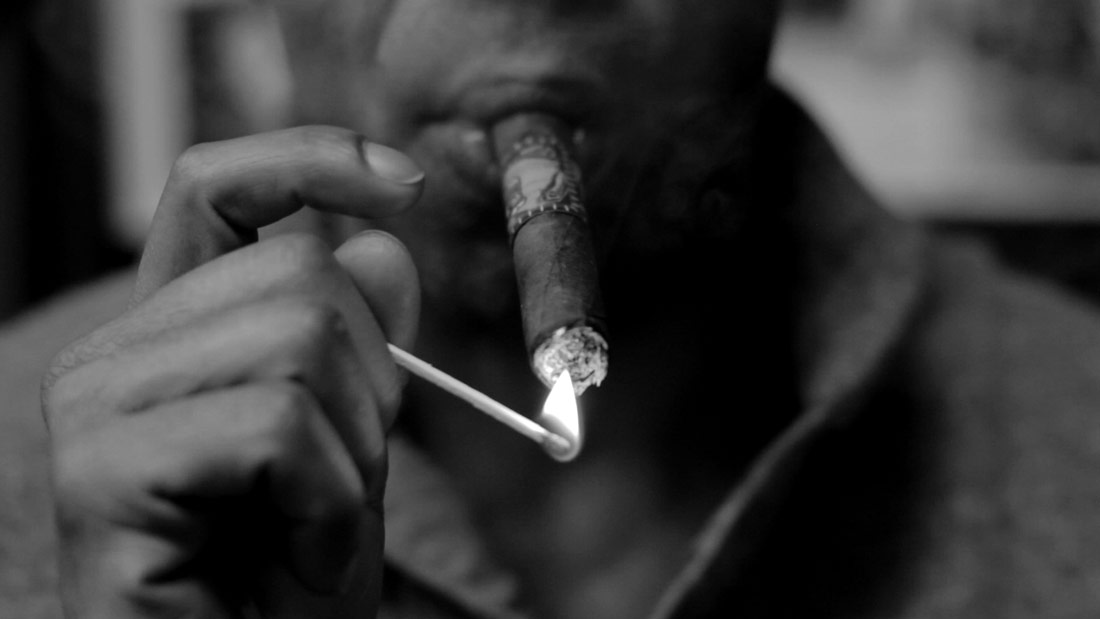
“I don’t think you can be a good designer if you don’t have a business sense; I don’t think you can be a good director if you don’t have a sense of production. I think it’s all part of the job and frankly, we all have the capacity for creative output.”
So how did you get from there to where you are now?
I produced for five or six years and was fortunate enough to work for some companies that put a lot of faith in my knowledge. Other environments didn’t welcome my creativity because they only saw me as a producer. It was hard to go into environments where I was just the Excel spreadsheet guy, especially when I had an interest in other areas and frequently knew more about the job than those doing it. That is a big issue for me. There is a lot of talk in creative fields about separating those who are “creative” and make things, and all the other people—but that’s fucking bullshit. I don’t think you can be a good designer if you don’t have a business sense; I don’t think you can be a good director if you don’t have a sense of production. I think it’s all part of the job and frankly, we all have the capacity for creative output. I even find the label “creative” to be obnoxious. Thankfully, I was fortunate enough to land in an environment that fostered my creativity from time to time.
The last job I worked before jumping into full-time directing was a hybrid position at a design and production company called Bigstar. The role was a cross between an executive producer and creative director and was the beginning of being able to do what I wanted. There, we did movie titles for docs and movies from Academy Award-winning directors, network rebrands for on-air identities, and some commercial work. This was also the first job where I worked with a group of people under me and could encourage their creativity; that was circular because I also learned from them. Through that job, I started directing live-action work and then went out on my own.
So what are you doing now?
I’m my own boss. I have Bureau of Common Goods, which is my studio. I’ve been pitching a lot of client work lately, sometimes for brilliant ideas and sometimes for less exciting client work that pays the bills. That’s part of why I needed to do Made by Hand. My best foot forward right now is my personal work and it’s what people come to me for. I think that what people are attracted to is the aesthetic and sense of storytelling.
Was creativity a part of your childhood?
Not any more or less than any other kid. I think most kids are imaginative. I was fortunate enough to have a mother who really engaged me in the arts. The Philadelphia Art Museum is pretty amazing and we went there frequently. Admission was free on Sundays and, as a teenager, I spent many Sunday afternoons there. Also, I’m sure nobody says this, but I was tethered to MTV growing up; I was an MTV baby. In hindsight, some of the big music video directors of that time were people who were known for their work in other disciplines; music videos were just one form of art for them. Matt Mahurin, a famous illustrator, was one of the music video directors whose work I followed; there was also Jean-Paul Goude, who was a designer. That had a serious impact on me and music videos are what made me want to go into filmmaking.
The other thing was that my mother put movies in front of me. I had gotten into cinema as an art form when I was young. I think I saw A Clockwork Orange when I was 10; I was watching Peter Greenway films by the time I was 12.
Tina: Did your mom have an interest in film that she passed down to you?
My mom was just super hip. She is an avid reader as well. My mother was really this driving force, even though I’m not sure it was a conscious choice on her part. My parents also took us to concerts when we were young. It was the way I was brought up, the way I was cultured.
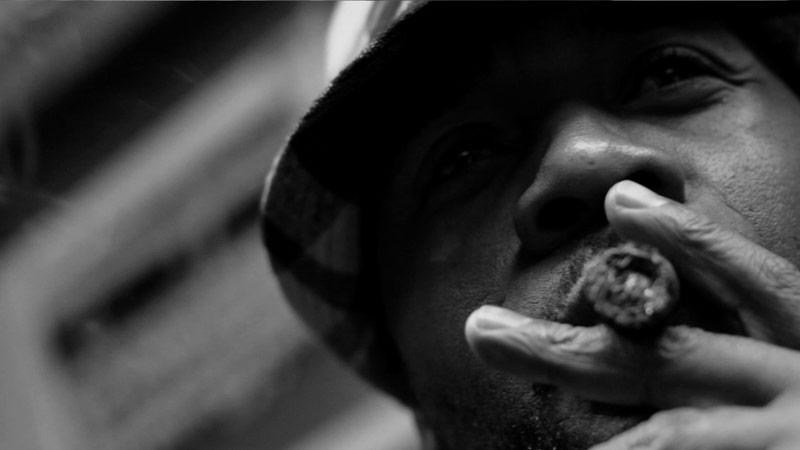
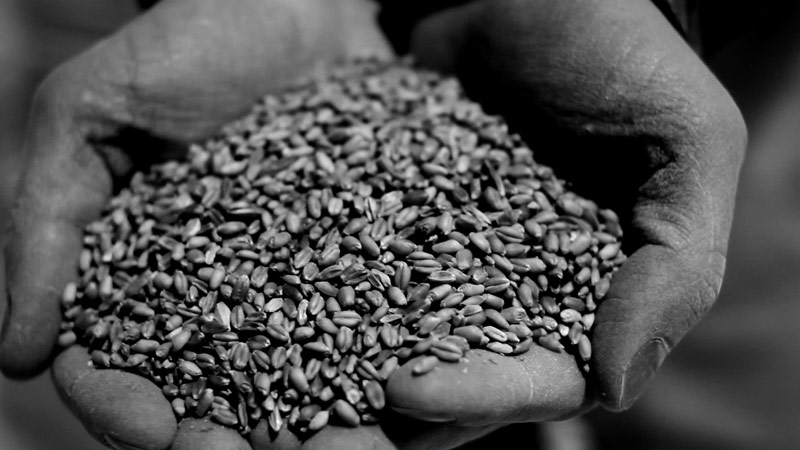
Was there an “aha” moment when you knew that filmmaking was what you wanted to do?
I never had an “aha” moment. Somewhere around my junior year of high school, I started to become aware of the fact that if I was going to go to college, then I should probably decide what I wanted to study. Music videos and filmmaking were becoming appealing and then I did the SVA summer program. After living in New York for the Summer, essentially on my own at 17, I had to return to home and finish my senior year of high school. It was a bit of a head-fuck because I had been thrust into New York City in the mid–90s, and my mom worked all day in Soho art galleries, so she wasn’t there to entertain me. I went to classes and then walked around the whole city, taking it in. It was a super liberating, incredible feeling. Then I had to go back to another reality for high school, which was really challenging. It was emotionally difficult to go back to something that seemed so unimportant and I had that feeling that even my friends were a little alien to me now because they hadn’t experienced the independence that I had.
Have you had any mentors along the way?
No. I’ve never had someone who has taken me under their wing. My learning has come from studying other people’s work.
In that sense, have there been people whose work has inspired you?
Yes, so this is a story I kind of skipped over. Earlier, I mentioned Chris Cunningham, who I believe was the last genius of music videos because, in my view, he took a format that was running its course and made it exciting again. The things he did weren’t just technically brilliant, but his ideas were otherworldly and put together in a language people hadn’t seen before. When I first saw his work, I was blown the fuck away.
Once, when I was working at Black Dog, Chris came into the office one day from London. Everyone was petrified to talk to him because he’s this genius and really quiet, and because he’s “the guy”. I just walked up to him and said, “Excuse me.” He and I ended up sitting in an editing room talking about film and William Gibson’s Neuromancer over tea for an hour. He was 28 and that number stuck in my head because by the time I was 28, I wanted to feel like I had accomplished something as well.
As an aside, I feel like there’s so much pressure to make it by a certain age. I think people coming out of school believe they have to make it by a certain (usually young) age. I still wrestle with that, too. I’m probably going to ruffle some feathers with this one, but I think the concept of things like Young Guns is bad. Maybe some of these people had the privilege and opportunity, while other people were busy working to pay rent. It feels unnecessary to me, but then again I don’t like the concept of contests anyhow.
Coming back to the mentor thing though, I never had somebody to guide me through a process, but what I did have was this one person’s work among many others that I looked up to. He broke norms with his work and I wanted to do that too. I think mentorship can come in a lot of different ways.
“[My wife] supports me in every way…She’s often my barometer. In a certain sense, she’s a mentor, too. You’re very fortunate if you have a partner who understands what you do and works with you through the struggle of the making and the wanting to make.”
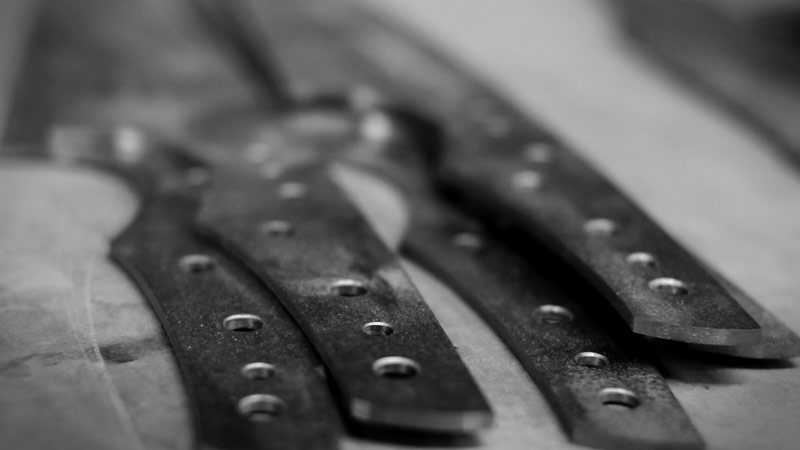
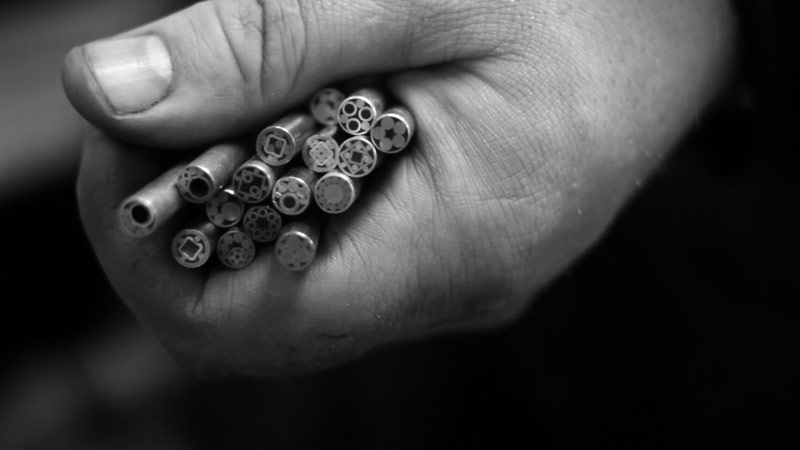
Has there been a point when you’ve taken a risk to move forward?
Definitely. I should add that I was well-supported in this choice to quit my job. I wasn’t happy and I said, “Fuck it.” I had the privilege, in that moment, to try to make it as a freelancer and make directing my thing. I knew that if it didn’t work, I could do something else. Giving up a good salary to go make stuff was pretty risky.
Are your family and friends supportive of what you do?
Yes. My wife is super supportive of what I do and I don’t think I’d even be remotely getting to do what I want without her. She supports me in every way. Even making small films is an intense thing for me. I labor over every aspect of it and she’s the one who, if I’m waffling over a choice, I’ll ask for input. She’s often my barometer. In a certain sense, she’s a mentor, too. You’re very fortunate if you have a partner who understands what you do and works with you through the struggle of the making and the wanting to make.
Do you feel a responsibility to contribute to something bigger than yourself?
Yes. Filmmaking is a really collaborative form because right out of the gate, it’s about the idea of working with others to make something for an audience. There’s the question of whether or not you embrace the audience and care about how they’re going to react. I actually don’t think about that, although I might eat my words later. I mean, I certainly don’t want to upset the audience, but I don’t want to treat them like dummies and spoon-feed them either. Aside from that, I just want to make the stuff I want to make.
How does that come back to contributing to something bigger? I spent all those years in advertising where we made things that were communicative, but they didn’t matter because it was just advertising. When I started working on more doc-based work, like the animation and design for Food, Inc., that felt more rewarding. Still, it wasn’t until Made by Hand that I felt like I could specifically have an agenda. There were a few points I wanted to hit and way up on that list was to inspire the shit out of people; that was the goal. I also wanted to re-inspire myself and figured that if I was inspired, others might be, too.
The other thing that goes along with that is that, in part, Made by Hand was a reaction to all the negativity surrounding unemployment and the dismal outlook for this next generation. I was angry about Wall Street robbing people of their savings and the fact that our parents would have to wait to retire. I was pissed off. I felt like I had to do something to engage in these topics on a personal level. Made by Hand is a way for me to make films that engage people through portraiture and hopefully allow them to see themselves in it. That was a front and center objective for me.
Tina: We’ve seen all the Made by Hand films, but your latest, The Bike Maker featuring Ezra Caldwell, is absolutely stunning in its emotional resonance.
I got to know Ezra through his blog that documents his experience with cancer. I’ve never made anything that felt this fragile. It’s hard for me to feel okay about the film. When I first found out that Ezra’s cancer came back, I actually considered canning the whole thing. Ezra is so engaging, warm, and open and I was worried about misrepresenting him. But he was unbelievably gracious.
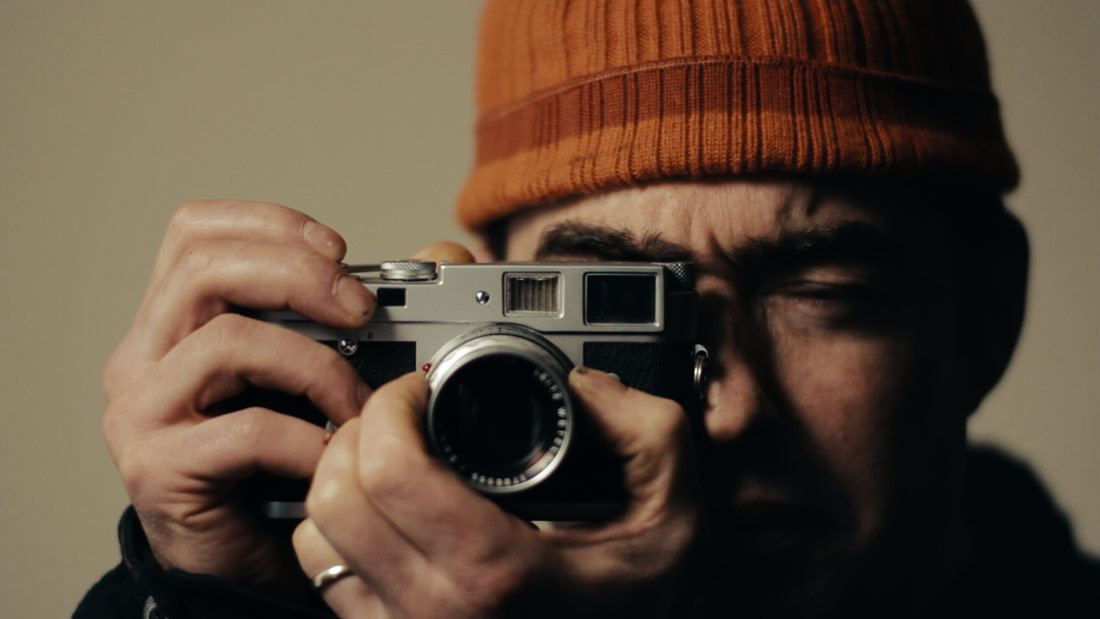
“Made by Hand is a way for me to make films that engage people through portraiture and hopefully allow them to see themselves in it. That was a front and center objective for me.”
Are you satisfied creatively?
That question. No. No, how can you be? It’s very rare for me. I think that, not only am I rarely creatively satisfied, but satisfaction comes with small victories. There’s usually more frustration than applause or happiness. I’m the kind of person who is always looking to do more and do better. I’m learning from my mistakes and that’s what I see—the failures. (laughing)
Is there anything you’re interested in exploring in the next 5 to 10 years?
I have a dream project that I’ve been wanting to do for a long time. I know exactly what it is to the point that it feels stifling. I don’t fancy myself a writer; I know the characters and some of the details, but I haven’t found the person to do the writing with me. It’s a pretty intense narrative feature film that I think could be disruptive and I’ve been putting it off. I think I need to find a way to get that project moving—that’s the next big challenge.
Last summer, there was a feature film being shot across from our apartment. The crew size looked like a student shoot. It was camped out there for 10 days. I took our dog, Jax, out for a walk and learned that it was Neil LaBute’s new feature. He was filming with two actors, one being Stanley Tucci, and it was a minimal, low-budget project with just one setting. I talked with him several times, even though I didn’t recognize him at first. I walked away from that encounter thinking, “If Neil LaBute can work like that, so can you. Put your fucking foot on the gas.” I don’t think I can look myself in the mirror and tell myself I’ve done “it” until I’ve actually done a feature.
Tina: Well, we’re looking forward to seeing what you do! So if you could give advice to a young filmmaker starting out, what would you say?
I think it’s pretty simple: stay curious, look for inspiration in everything, and write it down. You never know when you have a seed that you’ll come back to. Watch a lot of films and deconstruct the things you like and don’t like. That will give you a good primer.
Second, if filmmaking is something you plan on doing as a career, prepare to struggle. It’s not going to be easy. All through film school, I had a lot of confidence, but that isn’t the end game. I don’t even know that there is an end game.
As a young person, you look up to your mentors and want them to tell you about the world and how it should be and how it’s all going to come together for you. For myself, years later, I now know that there’s no magic to be enlightened by.
Ryan: The only magic formula is working your ass off!
And loving the process—because you’re also going to hate the process at times. Those two things go together and if you don’t love all of it, then go do something else.
How does where you live impact your creativity?
Well, I’m exceptionally fortunate to live in a place where I walk out my front door and am constantly engaged with people. I think the more you interact with people, the more room you have for being inspired. There’s that.
Then there’s the support system. I know so many talented people and we support each other’s work, help each other get work done, and inspire each other. I don’t know if I’d be able to do that if I wasn’t in such a densely populated area.
“I think it’s pretty simple: stay curious, look for inspiration in everything, and write it down. You never know when you have a seed that you’ll come back to.”
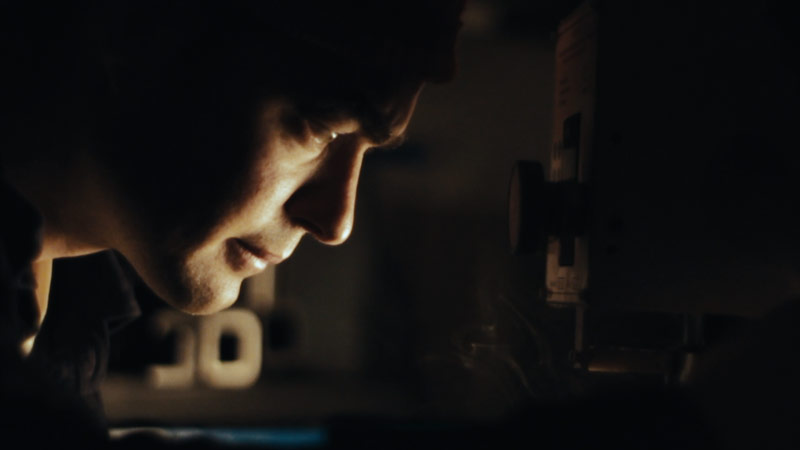
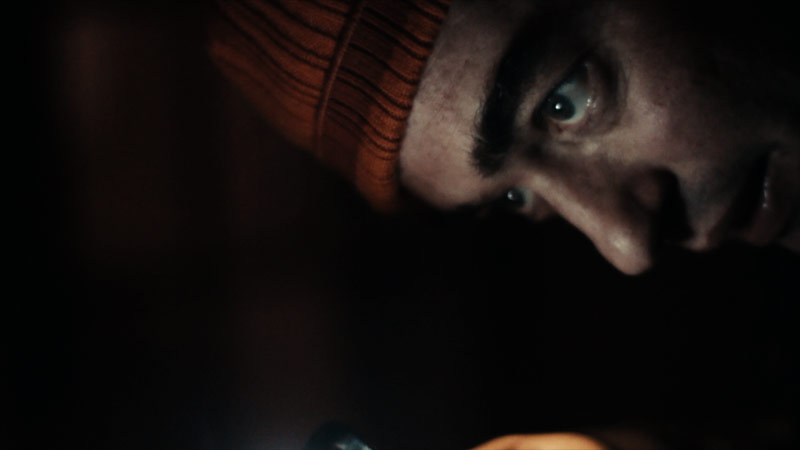
Is it important to you to be part of a creative community of people?
When I was in film school, I knew that one of the things I was paying for was to be around my contemporaries. I had some friends in the film department, but overall, I didn’t see them being a long-term support system for me. I was actually much more interested in students who were studying other disciplines and we’d hang out working at my apartment until the sun came up. When college ended, all that was over. That, combined with not getting to make the work I wanted to be doing was tough. Then I did Made by Hand and was lucky to fall into a community of people I knew who really liked it and have been supportive. I never found that in the filmmaking community, even though I tried. I do think a place like New York has a lot to offer in terms of community if you connect with the right group of people. I think the web community is pretty special in this regard; I’ve never seen anything like it.
Ryan: We haven’t either.
What does a typical day look like for you?
It’s different depending on how many jobs I am working on and if I’m pitching work or working on a production. My process also varies depending on what stage of a project I’m in. Every day is something different and I like that because I have gone through times when my days were regimented and the same, day in and day out. Now, I’m trying to figure out how to get the best out of myself each day. Also, I have a fur kid, our dog Jax, who needs a lot of attention, usually when I’m in the middle of something.
What music are you listening to?
My answer to that is a really awful thing and makes me sound like a crotchety old man, but I’m feeling over-stimulated by the way we have so much music available to us now all the time. I once took a Greyhound bus from NYC to Houston and had maybe two cassettes with me for the ride. I listened to DJ Shadow’s Endtroducing the whole way down. At the same time, not a week has passed where I haven’t listened to The Cure’s Disintegration. So, I just spend a lot of time with the same records.
Do you have any favorite movies or TV shows?
I’m just going to pick a few films that I think other people should see. How about that?
Perfect.
Harold and Maude has always meant the world to me. They don’t make films like that anymore. It’s a story that’s heartwarming, sad, and exceptionally taboo, but so beautiful. It’s from this era of cinema that I think is the real golden age. Directors were making films like MASH and Network, where there isn’t the faculty to do that anymore. I also like everything from Stanley Kubrick—he’s just his own genre, right?
In terms of TV shows, everybody says The Wire, which is pretty wonderful. Also, I’m not a big Hollywood kind of person, but I do have some J.J. Abrams love and think Fringe is awesome.
Your favorite book?
I’ve become quite interested in Michael Lewis over the last few years. I started with The Big Short, which details the banking crisis of 2008. Lewis has a brilliant ability to make stories about credit default swaps not only incredibly engaging, but also understandable. I always imagine his scenes playing out like a Coen Brothers film.
Your favorite food?
Is beer a food? I think that’s the beauty of food—you don’t have to have a favorite. I do like really simple things, though. A few fresh ingredients thrown together is good for me.
What kind of legacy do you hope to leave?
I hope I don’t make any more of a mess than I have to. This sounds kind of trite, but I’d like to make the world a little better than it was when I inherited it. I think it’s achievable, whether that means entertaining someone for half an hour or inspiring somebody to do something.
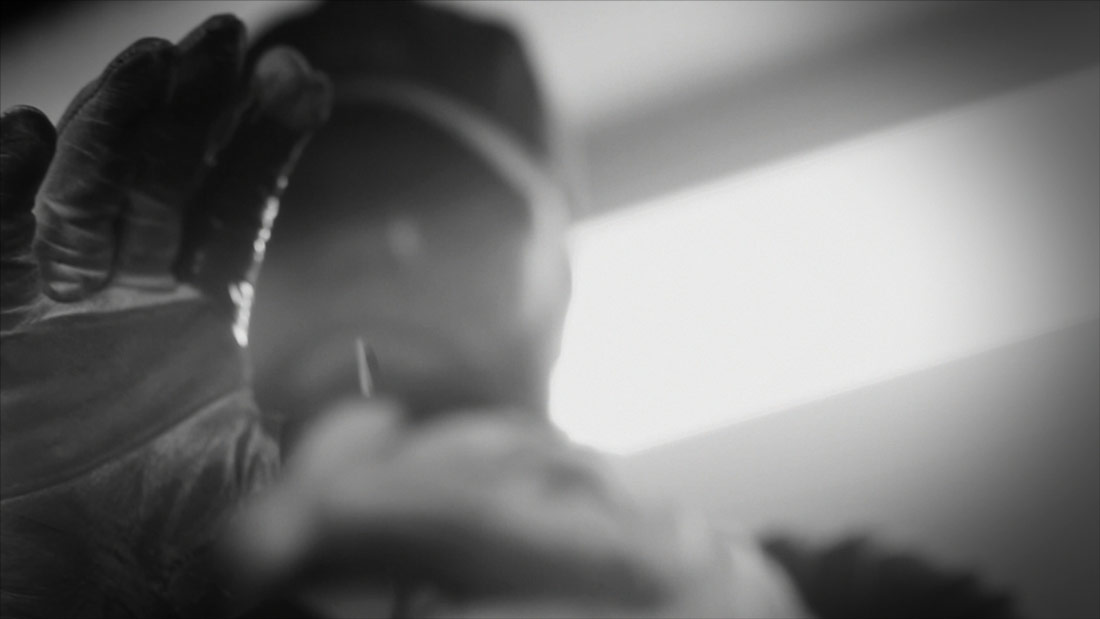
“This sounds kind of trite, but I’d like to make the world a little better than it was when I inherited it. I think it’s achievable, whether that means entertaining someone for half an hour or inspiring somebody to do something.”
